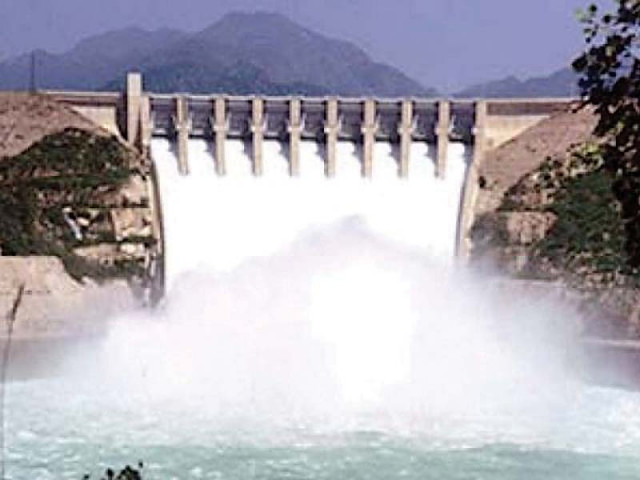Indus Waters Treaty: Held ‘constructive’ talks with Pakistan: WB chief
Kristalina Georgieva met PM Nawaz, economic team over her three-day visit.

Tarbela Dam. PHOTO: FILE
“I had constructive discussions to fully understand all perspectives on IWT,” a WB handout quoted Georgieva as saying. WB’s country office issued the statement at the conclusion of her three-day visit to Pakistan.
Georgieva held meetings with Prime Minister Nawaz Sharif and his economic team to discuss Islamabad’s dispute with India on IWT and the status of economic reforms which began three years ago under the umbrella of the International Monetary Fund. She supported deepening of Pakistan’s reforms for accelerating economic growth.
WB said that in order to maintain its neutral role as an IWT signatory, it in December had announced a pause in separate processes initiated by India and Pakistan under the treaty to allow the two countries to consider alternative ways to resolve their disagreements.
“The hope with announcing the pause was for the two countries to begin to resolve the issue in an amicable manner and in line with the spirit of the treaty rather than pursuing concurrent processes that could make the treaty unworkable over time,” WB said on Saturday.
Indus waters treaty: World Bank president calls Dar
The lender said it, India and Pakistan are in discussions over how to resolve disagreements between the two countries over India’s construction of two hydroelectric power plants. However, instead of opting for alternate dispute resolution mechanism, Pakistan apparently did not change its position.
A handout issued by Prime Minister’s office on Thursday reminded WB again to effectively play its role of arbitrator in implementation of IWT and to establish a court of arbitration for immediate settlement of a water dispute between Islamabad and New Delhi. The premier hoped WB “will play a lead role in resolution of disputes through establishment of a Court of Arbitration.”
During her three-day visit, Georgieva called on Premier Nawaz and met with his economic team led by the ministers for finance and power. This was her first visit to any country after assuming her new role on January 2 and she plans to visit India in the next weeks, said WB.
Georgieva also urged Pakistan to step up efforts for economic reforms. The PML-N government has already abandoned the reforms agenda after the expiry of the three-year IMF programme in September last year.
“Pakistan is fully aware that it needs to step up to a higher level of growth and create opportunities for its youth and contribute towards sustainable growth,” said Georgieva. “In my meetings with the prime minister and finance minister, we agreed that the government should speedily implement structural reforms needed to spur private investments.”
 India's water will not be allowed to go to Pakistan: Modi
India's water will not be allowed to go to Pakistan: ModiGeorgieva’s started her trip with a visit to the Tarbela Hydropower Project. She said that Tarbela was a marvelous project for Pakistan and a testimony to sustainable management of the Indus. Georgieva said that the project was an excellent example to showcase the world that Pakistan was producing clean, renewable and environment friendly energy.
The CEO also met with the leadership of Punjab, Sindh and K-P, and learned about province-level reform efforts and development projects under implementation and preparation with the bank’s support. She stressed the importance of the role of the provincial governments in the effective implementation of reforms.
She also discussed ways to expand financial services to the poor with the State Bank governor and CEOs of other banks. WB’s Pakistan portfolio has 27 investment lending projects under implementation with a total net commitment of $5.3 billion. During fiscal year 2016, WB commitments amounted to almost $2.3 billion.
Published in The Express Tribune, January 29th, 2017.












1724319076-0/Untitled-design-(5)1724319076-0-208x130.webp)






COMMENTS
Comments are moderated and generally will be posted if they are on-topic and not abusive.
For more information, please see our Comments FAQ